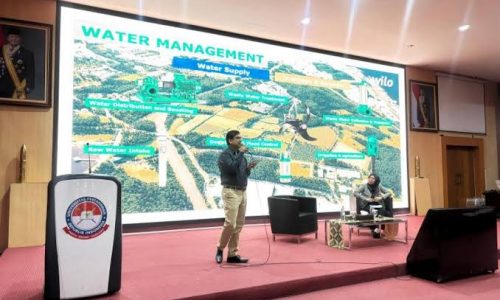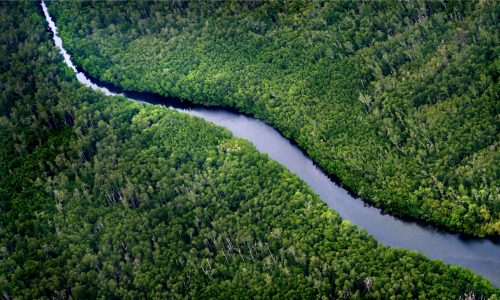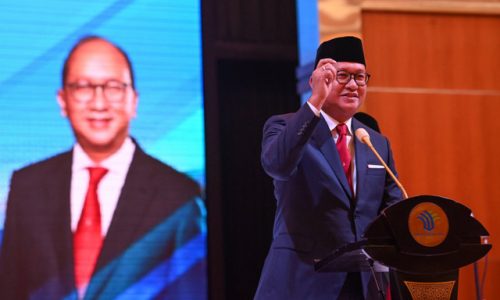Indonesian Finance Minister Sri Mulyani Indrawati has urged developed countries to rally support for sustainable infrastructure during the “Infrastructure Development Through Innovation and Collaborative Financing: Toward Greater Inclusivity and Productivity” event in Washington DC.
“When we face global problems such as [the COVID-19] pandemics and climate change, even though your country can still freely operate within its capabilities, you must also humbly admit that you cannot solve problems on your own even as a superpower in the world. I believe this kind of recognition helps the Indonesian G20 Presidency to convince member countries that we need to continue to work together and collaborate in sustainable infrastructure development,” she said during her keynote speech on October 10, 2022.
The G20 is a Group of Twenty, an intergovernmental forum of the 19 largest economies countries and the European Union, which also includes both industrialized and developing nations. The members account for 80% of gross world product (GWP), 59%-77% of international trade, two-thirds of the global population and half of the world’s land area. The forum addresses major issues in global economies, such as financial instability, climate mitigation and sustainable development.
Assisting Indonesia in its development
According to Sri Mulyani, most people had agreed to the mechanism which contributed toward a sustainable financial need which was needed by all countries. The financial mechanism will be protected by an institution called Multilateral Development Bank (MDB), to help support the finance of construction and the increase of capacity of the MDB.
A review on the Capital Adequacy Framework (CAF) is to optimize the MDB’s balanced sheets and to give way for bigger construction financing for its members.
The Lead Co-Chairs of Think 20 (T20) Bambang Brodjonegoro emphasized the important factor to push the sustainable infrastructure development. “One of the most important factors to deal with is the financing scheme for the development of infrastructure. The investments and public-private partnerships are the keys to creating a stronger sustainable infrastructure,” he said.
Risk in sustainable infrastructure
According to the Ministry of Public Works and Public Housing (PUPR), the development and implementation of sustainable infrastructure are facing several problems. Among them are social, economic and environmental problems, which include land acquisition problem, low acceptance of technology and community unpreparedness for the plans and results of development.
To support the national economy and the people’s quality of life, the public works ministry’s Center for Research and Development for Social, Economic and Environmental, Research and Development Agency explained the need for innovation to create Research and Development products that are better, easier, cheaper and faster that can be adapted to social, economic and environmental conditions.









